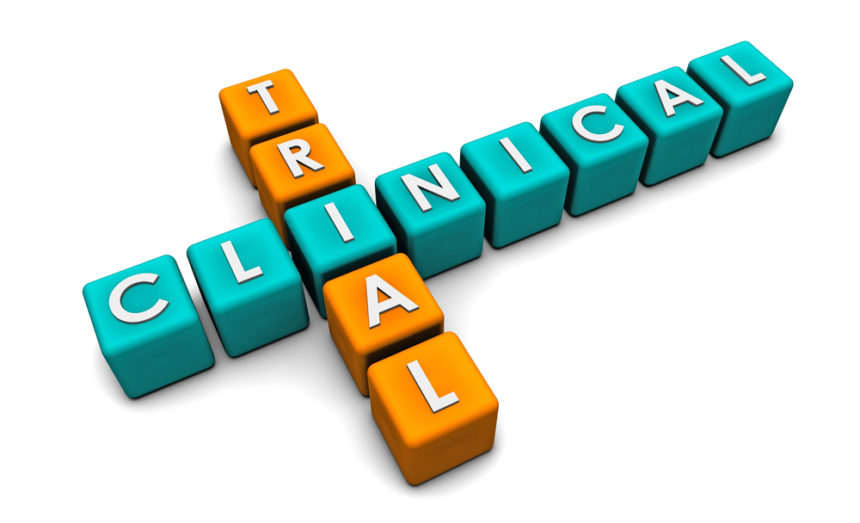This post was originally published on this site
A combination of Gazyva (obinutuzumab) and Revlimid (lenalidomide) is effective for some patients with follicular lymphoma who failed prior treatments, including those with early relapses, according to a Phase 2 study in which more than 70% of the patients responded to induction therapy.
With a manageable safety profile, the regimen is superior to a combination of Rituxan (rituximab) plus Revlimid, and warrants future trials to directly compare both regimens in patients with follicular lymphoma, the study suggests.
The study, “Obinutuzumab combined with lenalidomide for relapsed or refractory follicular B-cell lymphoma (GALEN): a multicentre, single-arm, phase 2 study,” was published in the journal The Lancet Hematology.
While there is no standard of care for follicular lymphoma patients who failed prior treatments, they are often managed with Rituxan-based regimens, including a combination of Rituxan and Revlimid, which was approved in May for patients in the U.S.
Rituxan (by Roche and Biogen) consists of an antibody that targets CD20 — a molecule widely produced by lymphoma cells — for destruction. Revlimid (by Celgene) is designed to increase T- and NK-cell function, improving immune responses against cells tagged by Rituxan.
Gazyva (by Roche) is another CD20 antibody that’s approved to treat patients with refractory or relapsed follicular lymphoma. While it works through a similar principle as Rituxan, Gazyva leads to a lower toxicity and is better at activating the immune system, preclinical studies show.
These data suggest that combining Gazyva, instead of Rituxan, with Revlimid could have greater therapeutic effects, particularly in patients with a fast disease progression; the combination may even be as efficient as stem cell transplants and therapy regimens approved for patients with refractory disease.
To test this, researchers conducted a multicenter, open-label, Phase 1b/2 study (NCT01582776) — called GALEN — to evaluate the safety and effectiveness of Gazyva plus Revlimid in patients with follicular lymphoma who relapsed or did not respond to a prior line of therapy (including Rituxan).
The study was sponsored by the Lymphoma Academic Research Organization and recruited patients across 24 centers in France, from October 2012 to December 2018.
Data from the Phase 1b study showed that the six-month treatment had a satisfactory safety profile and established the recommended Phase 2 dose of Revlimid at 20 mg plus a fixed dose of Gazyva of 1,000 mg.
The Phase 2 part of the study included a total of 86 patients in its efficacy analysis and 88 patients in the safety analysis. With a mean age of 63, these patients received six months of induction therapy with intravenous Gazyva plus oral Revlimid, followed by a two-year maintenance period that consisted of one year with Gazyva plus Revlimid, followed by one year with Gazyva alone. The median follow-up was 2.6 years.
At the end of induction therapy, most patients (79%) had responded to the combination, meeting the trial’s primary efficacy measure.
Of all patients completing the treatment, 38% achieved a complete response at the end of induction, meaning they no longer had detectable signs of the disease, either on radiological or clinical examination, or on bone marrow biopsies.
Across the entire study period (induction plus maintenance), the best proportion of patients who achieved an overall response was 84%. On a larger scale, this finding confirmed the preliminary activity observed in the Phase 1b part of GALEN, the researchers said.
At two years, 62% of patients were living free of events (no documented disease progression or relapse), and 70% were still responding to treatment. Overall survival was 87%.
Post-hoc analyses revealed similar outcomes (including the proportion of responders and overall survival) in patients with faster disease progression (relapse within two years of initial diagnosis) versus patients who relapsed later (more than two years later).
The most common adverse events were weakness (61% of the patients), low blood neutrophil count (43%), bronchitis (41%), diarrhea (40%), and muscle spasms (39%).
The most common serious adverse events were basal cell carcinoma (6%), febrile neutropenia (5%), and infusion-related reaction (3%). One patient died due to treatment-related febrile neutropenia.
“Our data shows that lenalidomide [Revlimid] plus obinutuzumab [Gazyva] is active in previously treated patients with relapsed or refractory follicular lymphoma, including those with early relapse, and has a manageable safety profile,” the researchers wrote.
Gazyva is currently being evaluated in combination with umbralisib, Revlimid, or combination chemotherapy in another study (NCT03269669), which is sponsored by the National Cancer Institute.
The post Gazyva-Revlimid Effective for Certain Patients with Relapsed or Refractory Follicular Lymphoma, Trial Suggests appeared first on Lymphoma News Today.
The post Gazyva-Revlimid Effective for Certain Patients with Relapsed or Refractory Follicular Lymphoma, Trial Suggests appeared first on BioNewsFeeds.


